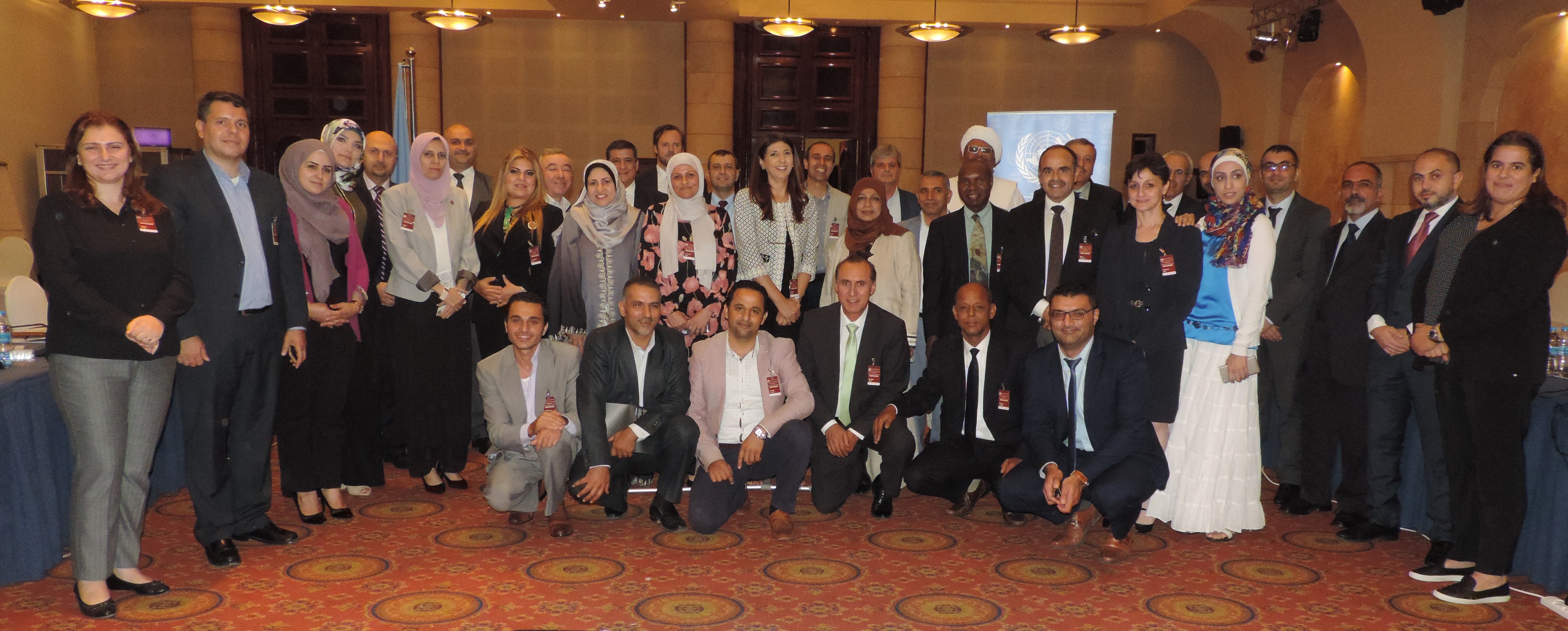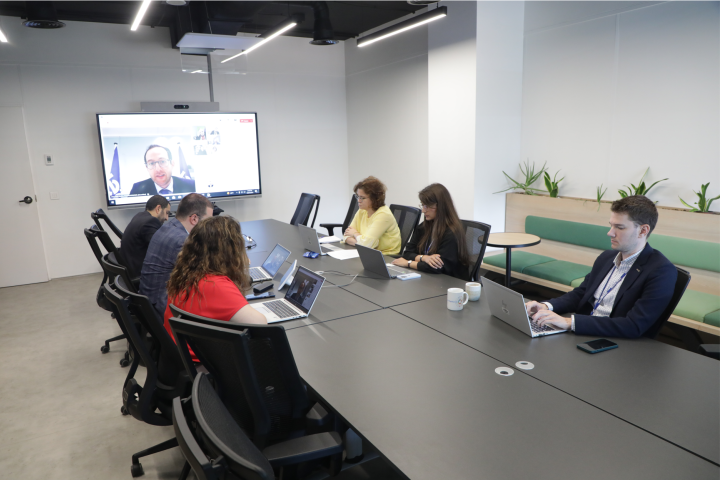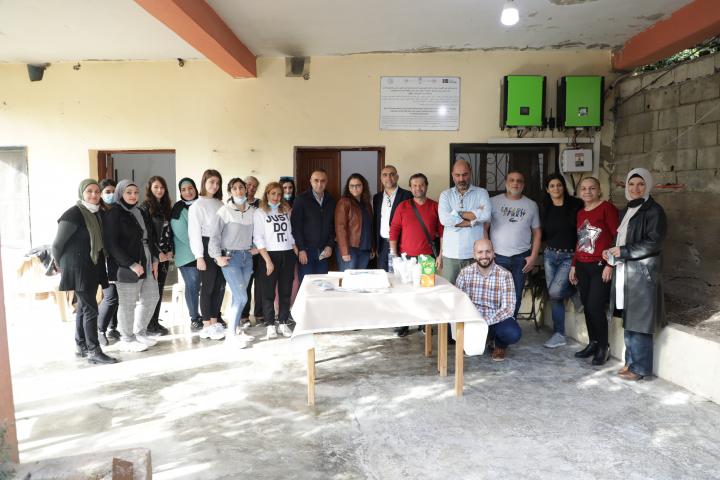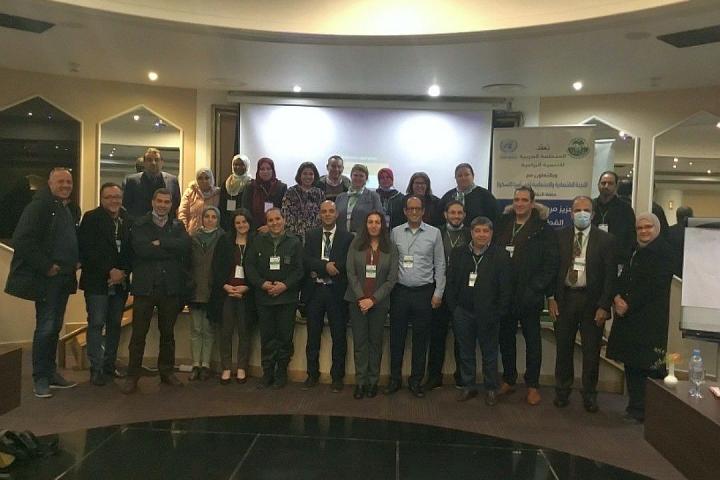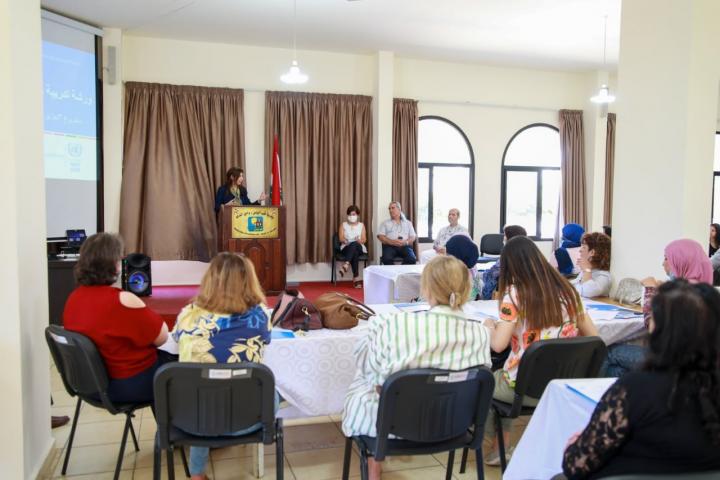The UN Economic and Social Commission for Western Asia (ESCWA) Technology Centre (ECT) assists its 18 member States as well as public and private organizations to accelerate socio-economic development, reach technological parity with other nations and regions of the world, and contribute to the conversion of member countries’ economies into ones based on scientific and technological knowledge.
On 2 and 3 October, representatives from 13 Arab countries and more than a dozen regional and international experts gathered in Amman, where the ETC has been hosted since 2010 by the Government of Jordan at the Royal Scientific Society.
Their objective was to discuss the outcome of the 30th Ministerial Session of ESCWA, including the Beirut Consensus, released by the Session, and identify priority areas that could be included in the ETC work programme for 2019. They also deliberated on technology priorities and needs of member countries that fall within ETC strategic objectives and areas of intervention.
As a result, experts proposed the following key goals for 2019: increasing coordination and networking between research and technology centres of the Arab region; continued focus on agricultural technologies especially related to water—the region’s most scarce resource; generating more climate action; and investing in green technologies through linkages with the Climate Technology Centre and Network (CTCN).
“We are thrilled to have convened such a diverse group of experts who shared invaluable experiences to feed the next year’s programme of work, but also longer-term priorities that we need to start addressing today,” said Reem Nejdawi, Executive Director of the ETC.
“Technology is a main motor for development and a major driver of employment,” she added. “The ETC is focused on enhancing the capabilities of Arab countries so they can overcome challenges and provide new opportunities for individuals—especially women, youth and other marginalized groups who are essential actors for change.”
According to the UN, the Arab region has one of the lowest rates of female participation in the labor market at just 21 per cent, and 60 million young Arabs will be looking for jobs during the next 30 years.
“Youth are the hope of the future,” said Rahma Ibrahim Al-Mahrooqi, Deputy Vice Chancellor for Postgraduate Studies and Research at the Sultan Qaboos University of Oman, and Chairperson of the 6th ETC Technical Committee Meeting. “We need to provide them with resources, facilities, mentors, and expose them to what’s happening,” she stressed. “Education doesn’t have to take place in a room, it can be in the community or in factories as long as we provide hands on training and experimental learning with a focus on their talents.”
As a next step, the Board of Governors of the ETC will convene in November to adopt the work programme for 2019. The Board consists of many ESCWA member States—all of which are committed to achieving the 2030 Agenda for Sustainable Development and availing of technology as a means of implementation.
*****
For more information:Nabil Abu-Dargham, Head, ESCWA Communication and Information Unit
+961-70-993-144; email: dargham@un.org
Ms Rania Harb +961-70-008-879; email: harb1@un.org
Ms Mirna Mahfouz: +961-70-872-372; email: mahfouz@un.org
